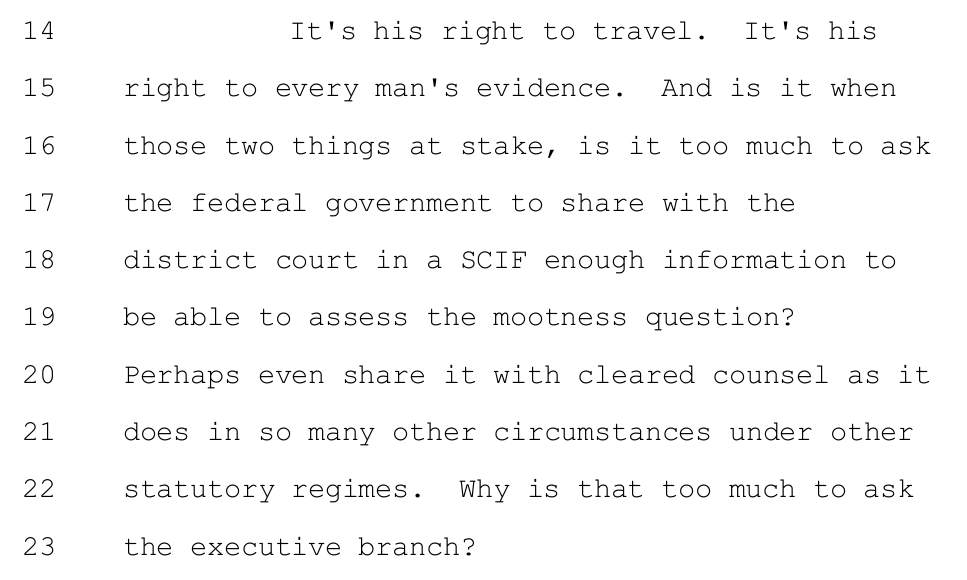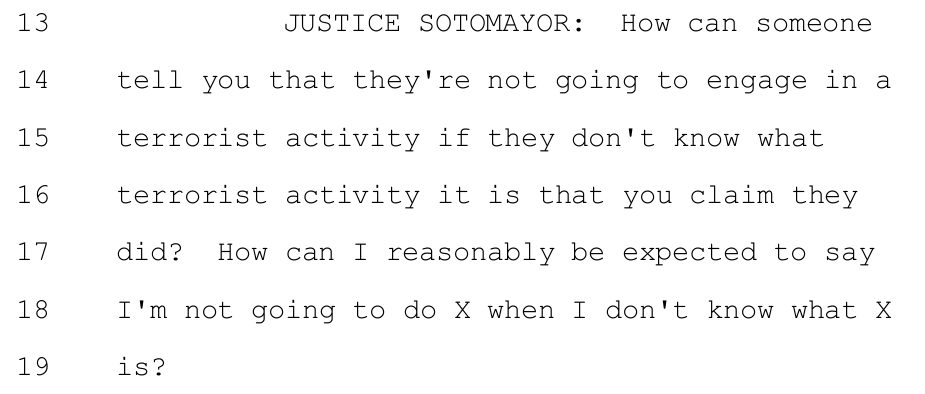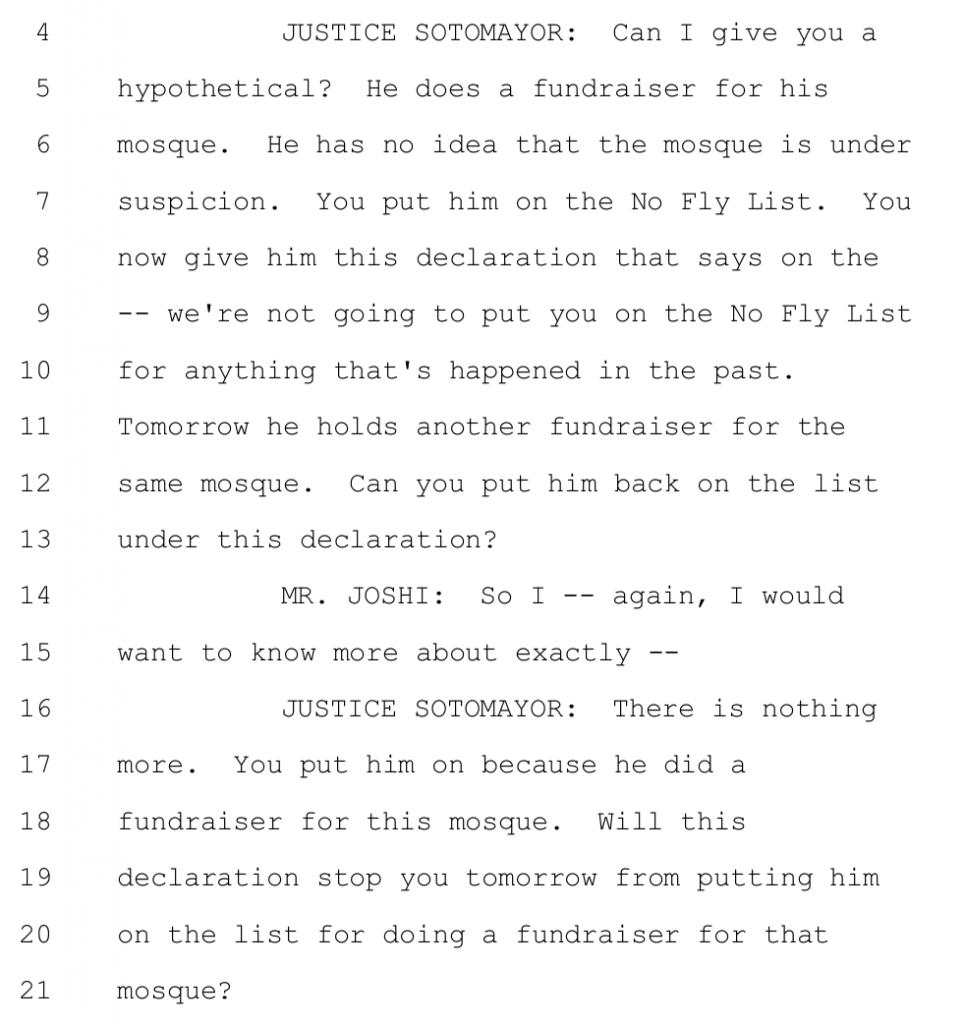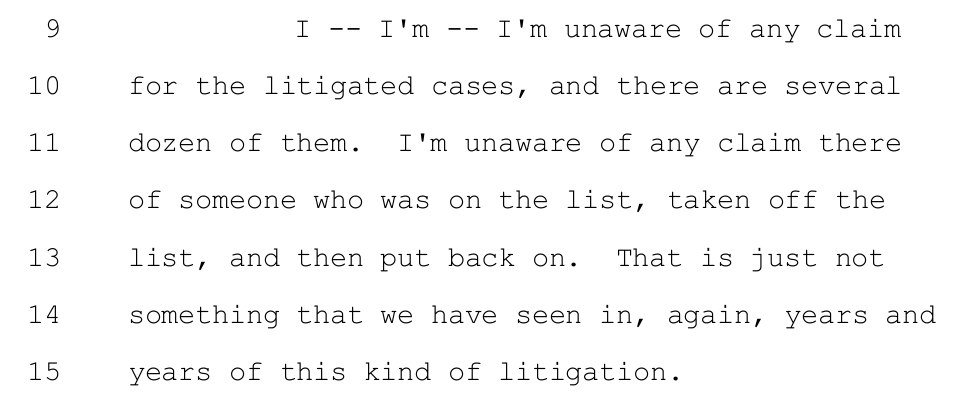Supreme Court hears arguments in “No-Fly” case
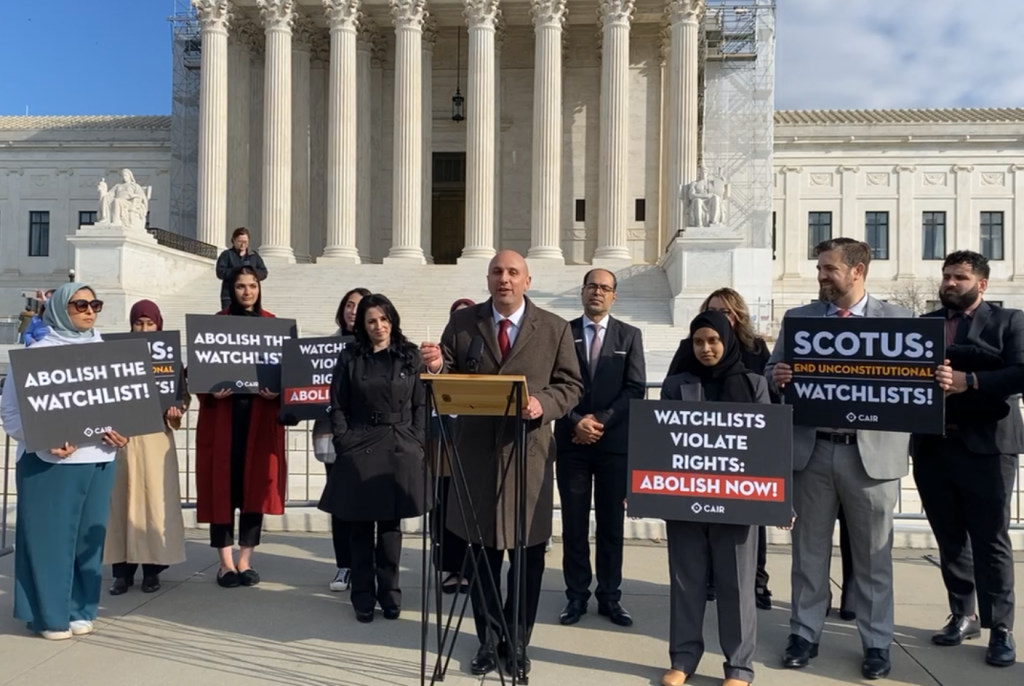
[CAIR Senior Litigation Attorney Gadeir Abbas speaks to press conference in front of the U.S. Supreme Court following oral argument in FBI v. Fikre.]
In order to get such a complaint dismissed as “moot”, the government has the burden of showing that “subsequent events made it absolutely clear that the allegedly wrongful behavior could not reasonably be expected to recur”, according to the District Court.
Inquiring minds on the Supreme Court wanted to know how the government could meet that burden — or whether it could ever do so — without disclosing the basis for the initial no-fly decision and/or what changes had been made to no-fly decision-making criteria or procedures.
Several Justices expressed “sympathy” with the government, but concern for due process:
 Justice Gorsuch, for example, wanted to know why the government wouldn’t even tell a judge in a “Sensitive Compartmented Information Facility” (and maybe the plaintiff’s lawyer, if the government would give them a security clearance) anything about a no-fly decision:
Justice Gorsuch, for example, wanted to know why the government wouldn’t even tell a judge in a “Sensitive Compartmented Information Facility” (and maybe the plaintiff’s lawyer, if the government would give them a security clearance) anything about a no-fly decision:
Justice Sotomayor asked repeatedly how someone could avoid getting put back on the list for again doing the same thing that had gotten them put on the list the fiurst time:
The government’s lawyer, Assistant Solicitor General Sopan Joshi, argued that the government is entitled to a “presumption of regularity” that it won’t do illegal things, and therefore to a presumption that (a) it hadn’t removed Mr. Fikre from the no-fly list just to moot his lawsuit, and (b) it wouldn’t put him back on the list wihout legal justification.
Mr. Joshi, seemed, in other words, to be putting the “presumption of regularity” that the government acts legally ahead of the “presumption of innocence” that Mr. Fikre — who has been convicted of no crime — has acted legally.
At this stage of the case, when there has been no trial or fact-finding, legal motions and appeals are suppsed to be decided on the assumption, for purposes of argument, that the allegations in the complaint are true. Mr. Fikre has plausibly complained that — given that he has been convicted of no crime, and afforded no due process — he was blacklisted illegally. And if the government blacklisted him illegally once, on the basis of lawful activities (including activities protected by the First Amendment), it’s entirely reasonable to think that the government might blacklist him (illegally) again.
Mr. Joshi claimed to be unaware of any case in which someone had been removed from the no-fly list but later put back on it:
Mr. Joshi’s claim to ignorance of any such case strains credulity. In the only no-fly list case to go to trial, Ibrahim v. DHS — which was discussed during today’s Supreme Court argument — that’s exactly what was found to have happened. And the fact of Dr. Ibrahim’s on-again, off-gain, on-again status on the no-fly list was discussed in the District Court decision and in two subsequent opinions by the 9th Circuit Court of Appeals.
Mr. Fikre has also complained that he has been chilled from exercising his his First Amendment rights and his right to travel, even after being told that he had been taken off the no-fly list, because of his fear that he could be put back on the list if he travels to the “wrong” places or associates with the “wrong” people. If he doesn’t currently meet the government’s no-fly criteria, that could be solely because of this chilling effect. That’s why he still needs at least a declaratory judgment and/or an injunction so that he can resume his lawful travel and free association without fear of being blacklisted again for doing so.
In rebuttal, Mr. Joshi suggested a fallback position for the government: “Star Chamber” proceedings in which the government would make its case in secret. Mr. Joshi seemed to suggest that because such a procedure would be uselss to people like Mr. Fiktre, the Court should require no judicial fact-finding at all, rather than requiring normal due process:
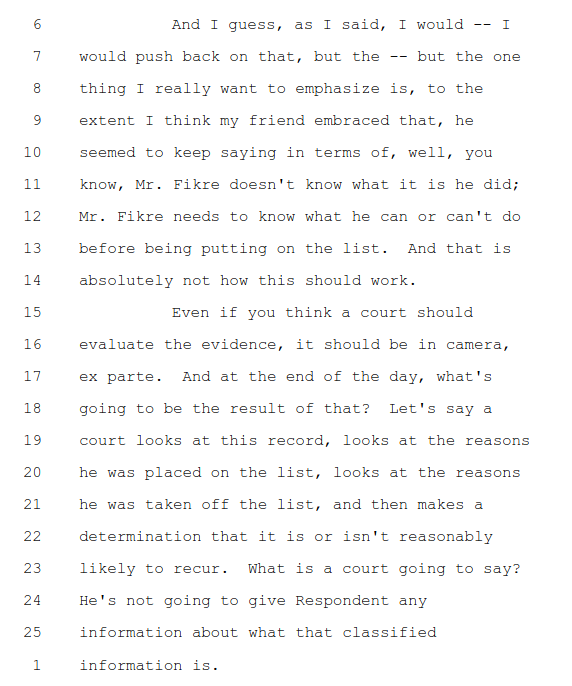 The govenrment seems to be drawing a line in the sand: Its highest priority with respect to no-fly decisions is not having to explain them to individuals whose rights are restricted.
The govenrment seems to be drawing a line in the sand: Its highest priority with respect to no-fly decisions is not having to explain them to individuals whose rights are restricted.
The case stands submitted. The next chapter in this story will be a decision by the Supreme Court.
